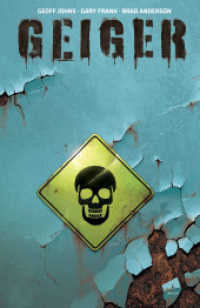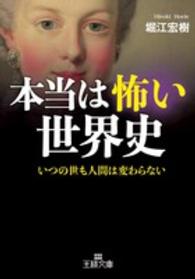- ホーム
- > 洋書
- > 英文書
- > Literature / Classics
基本説明
伝説的な弓の名手についての大河物語に託して独立から’70年代のインドの状況を語るポストコロニアル小説。
Translated by Gayatri Chakravorty Spivak. This important novel by a major Indian writer, touches on vital issues that have, since the book's first publication in 1980, grown into matters of urgent social concern, including land rights and human rights.
Full Description
'I had but that one arrow', says Chotti Munda, the hero of this epic tale. A 'magic' arrow that stood for the pride, the wisdom, the culture of their society, a society threatened with inevitable disintegration as its traditional structures crumbled under the assault of 'national development'. The wide sweep of this important novel encompasses many layers. It ranges over decades in the life of Chotti - the central character - in which India moves from colonial rule to independence and then to the unrest of the 1970s. It probes and uncovers the complex web of social and economic exchange based on power relations. It traces the changes, some forced, some welcome, in the daily lives of a marginalized rural community. And at its core, it celebrates Chotti, legendary archer, wise and farsighted leader, proud role model to his younger brethren. Written in 1980, this novel is remarkable for the manner in which it touches on vital issues that have, in subsequent decades, grown into matters of urgent social concern.
It raises questions about the place of the tribal on the map of national identity, land rights and human rights, the 'museumization' of 'ethnic' cultures, and the justifications of violent resistance as the last resort of a desperate people.
Contents
Translator's Foreword. 1. 'Telling History': An Interview with Mahasweta Devi. 2. Chotti Munda and his Arrow. Translator's Afterword. Notes.








